![]()
Mon, April 16, 2012 | By Richard Weitz
This article was first published in the Turkey Analyst, vol. 5 no. 8 (www.turkeyanalyst.org), a biweekly publication of the Central Asia-Caucasus Institute & Silk Road Studies Program Joint Center. © Central Asia-Caucasus Institute & Silk Road Studies Program Joint Center, 2012.
Despite its challenging neighborhood, Turkey has an exemplary nuclear nonproliferation record. Several favorable factors have allowed Turkey to abstain from developing its own nuclear weapons and make strong declarations in favor of nuclear nonproliferation. Having physical access to the U.S.-NATO nuclear weapons has been a form of compensation for Turkey’s not developing its own national nuclear arsenal. Even so, while Turkey can boast a largely successful nuclear nonproliferation record, certain plausible developments could still undermine it and force a reluctant Ankara to seek its own nuclear arsenal.
Background
During the Cold War, the Turkish government relied on its membership in the multilateral NATO alliance and, more importantly, its bilateral alliance with the United States to ensure its security against the Warsaw Pact. Neither the collapse of the bloc, nor the wars involving neighboring Iraq, which under Saddam Hussein sought nuclear weapons and used chemical ones, nor Iran’s nuclear ambiguous ambitions has prompted Turkey to pursue nuclear weapons.
Turkey’s nonproliferation bona fides were highlighted by the March 26-27 Nuclear Security Summit in Seoul. Turkey’s delegation reported progress in adopting international treaties against nuclear terrorism, supporting UN and IAEA efforts in these areas, holding training courses for its customs and nuclear workers on nuclear security issues, participating in anti-nuclear smuggling initiatives, shipping dangerous highly enriched uranium in spent reactor fuel to the United States for more secure storage, and upgrading the safety and security regulations for its emerging civilian nuclear energy program, especially the Akkuyu Nuclear Power Plant project.
Although the focus of the summit was on keeping dangerous nuclear materials out of the hands of terrorists, the delegates naturally focused on the nuclear proliferation problems presented by North Korea and Iran. Much of the bilateral meeting between U.S. President Barack Obama and Turkish Prime Minister Recep Tayyip Erdoğan apparently focused on the Iranian nuclear issue. “I believe there is a window of time to resolve this question diplomatically, but that window is closing,” Obama said after that meeting.
The ruling Justice and Development Party (AKP), which assumed office in 2002, has at times deviated from Washington’s preferred policy regarding Iran, though its approach has corresponded to the mainstream international view regarding Iran’s nuclear activities. The AKP leadership accepts Iran’s right to pursue all nuclear activities providing they have exclusively peaceful purposes as verified by appropriate international monitoring. Unlike Western diplomats, AKP leaders profess to accept Iranian denials that they are seeking nuclear weapons.
In the absence of convincing evidence to the contrary, Turkish officials oppose the imposition of economic and other sanctions against Iran by the UN Security Council or by individual countries. These sanctions can severely harm Iran’s neighbors and key economic partners, like Turkey. Turkish officials want to prevent other countries, such as Israel, from employing — or threatening to employ — force against Iran to attack its nuclear facilities. Turkish officials consider the “dual-track” approach adopted by the Council and other countries toward Iran — combining offers of cooperation with threats of attack and sanctions — counterproductive. Instead, they argue that the best way to prevent Iran from seeking nuclear weapons is to address the underlying sources of insecurity that might induce Tehran to seek them. Rather than rely on threats and sanctions, they want to offer Iran security pledges in return for reciprocal Iranian guarantees that Tehran will not use its nuclear activities for military purposes.
Turkish leaders have sought to mediate the nuclear dispute between Tehran and the West. In 2010, Turkey worked with Brazil to achieve a confidence-building exchange of enriched uranium between the parties. After the West rejected that proposal, Turkey adopted a lower profile regarding Iran. But the recent intensification of Western sanctions to encompass Iran’s energy exports has galvanized Turkey, heavily dependent on Iranian natural gas, into action. Turkey has renewed its diplomatic efforts and once again offered to host talks on its territory.
Implications
Several favorable factors have allowed Turkey to abstain from developing its own nuclear weapons and make strong declarations in favor of nuclear nonproliferation. These include its membership in NATO, its strong defense ties with the United States, and its lack of a major nuclear energy program.
Turkey’s defense policy remains closely integrated in NATO. Turkey’s security ties to the United States offered a supplementary guarantee that became important whenever it looked like NATO’s European members were unwilling to wage war to defend Turkey from its foreign adversaries. The United States remains Ankara’s closest foreign defense partner and a major source of Turkish military technology.
Problems arose during the two Western-led wars against Iraq, which led Ankara to doubt the credibility of NATO and U.S. security commitments. Although the United States did offer some protection, some European members of NATO proved reluctant to meet Turkish requests to deploy air and missile defenses to protect Turkey from Iraqi missile strikes.
Form Ankara’s perspective, the U.S. tactical nuclear weapons that have reportedly been stationed in Turkey for decades under NATO’s nuclear-sharing arrangement help bind the U.S.-NATO security dimensions together. Having physical access to the U.S.-NATO nuclear weapons was a form of compensation for Turkey’s not developing its own national nuclear arsenal.
According to public sources, Turkey has more U.S. nuclear weapons than any other alliance member outside the United States. Of the 200 or so B-61 nuclear bombs still stationed in Europe, Turkey hosts approximately 90 of them at Incirlik Air Base. Public opinion polls show that Turkish citizens do not like hosting these weapons.
Until recently, it was feared that Turkey’s national security establishment would resist the possible removal of the U.S. nuclear weapons in Turkey, either unilaterally or as part of an arms control deal with Russia. But the AKP government has effectively tamed its generals and they would likely accept a decision of the government to remove them, perhaps as part of its initiative to create a nuclear-free zone in the greater Middle East. The Turkish military does not appear to practice or otherwise plan to use these weapons under any scenario. They are a symbolic manifestation of Turkey’s security links to Washington and Brussels that could be replaced by something else — perhaps integration within EU defense structures — should these ever develop into effective institutions — or, more plausibly, the emerging U.S.-NATO ballistic missile defense (BMD) architecture.
Turkey has made the controversial decision to host an U.S.BMD radar, again within the NATO context, in order to reinforce Ankara’s security ties with the West in the face of the more complex threat emerging from Iran. The decision was both presented and facilitated by the restructuring of the U.S. missile defense architecture in Europe by the Obama administration, which relocated the initial U.S. deployments out of East Central Europe and toward the Balkans, Black Sea, and eastern Mediterranean regions. The new structure, with the interceptor missiles based in Romania and on nearby U.S. warships, offers Turkey greater BMD coverage as well as the opportunity, though unsought, to play a major role in that architecture.
Despite Turkish lobbying not to identify Iran as the main target of the NATO BMD network, Iranian leaders and media clearly consider the decision to host the radar in the face of Iranian and Russian opposition an unfriendly act. But the decision has proven useful in silencing Western critics of the AKP’s eastern orientation and has been overshadowed by the more serious differences between Ankara and Tehran regarding Syria. The latent conflict for influence in Iraq between Iran and Turkey, backed by Western governments, has reinforced Turkey’s security alignment with the West, with many U.S. officials now considering Ankara the most influential U.S. ally in the greater Middle East.
Conclusions
Turkey’s government must be pleased by how the April 13-14 meeting in Istanbul on Iran’s nuclear program turned out. Despite many obstacles, the Iranian negotiating team joined their international counterparts in Istanbul, discussed important issues such as uranium enrichment and sanctions, and agreed to launch a sustained negotiating process to resolve them. Although no concrete changes in either side’s positions emerged from these talks, and Turkey’s role in the future Iranian nuclear discussions looks set to decline as the negotiating venue moves elsewhere and the parties no longer require Turkey as a mediator, the Turkish government can be satisfied that they did not collapse in recriminations or, as some Iranians demanded, relocate elsewhere due to Iranian-Turkish tensions over Syria. Even so, while Turkey can boast a largely successful nuclear nonproliferation record, certain plausible developments could still undermine it and force a reluctant Ankara to seek its own nuclear arsenal.
The Iranian negotiations will now move to Baghdad. Wide differences separate the parties, but an agreement that would limit Iran’s enrichment activities, make its nuclear program more transparent, and address uncertainties regarding Iran’s past and future nuclear plans, in return for a suspension of some sanctions still seems the best outcome. Turkey would certainly welcome a reduction in Iranian-related tensions, even if Ankara lacks the means to achieve such a benign outcome through its own exertions.
Several developments, however, could move the environment in a more adverse direction. Most obviously, unambiguous evidence could arise that Iran is pursuing nuclear weapons, which would compel Turkey to reassess its nuclear weapons policies.
Turkey’s plans to expand its domestic nuclear energy program would, for the first time, provide its government with the scientific, technical, and industrial foundations to pursue genuine nuclear weapons options, as Iran’s own development of the capacity to make nuclear weapons has demonstrated to Ankara and others. But Turkey’s leaders might still decide that, even if Iran developed a small nuclear arsenal, they would be better off continuing to rely on NATO and Washington as well as Turkey’s powerful conventional military, bolstered by national and multinational missile defenses, rather than pursue an independent Turkish nuclear force as a means of deterring even a nuclear-armed Iran.
However, the certainty of these Western security guarantees is also not immutable. Turkey looks set to have a major confrontation with its European allies when Cyprus assumes the rotating six-month EU presidency in July. And the unexpectedly close ties between the Erdoğan and Obama administrations, which is underpinned by the partnership that has been established between Secretary of state Hillary Clinton and Foreign minister Ahmet Davutoğlu would not invariably persist with a change in leadership in either or both capitals.
Richard Weitz is Senior Fellow and Director of the Center for Political-Military Relations at the Hudson Institute.



 RSS
RSS




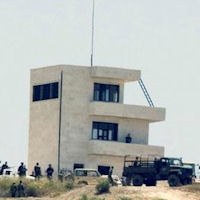
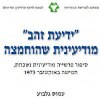
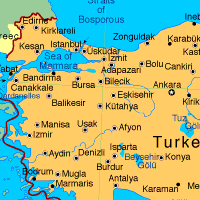
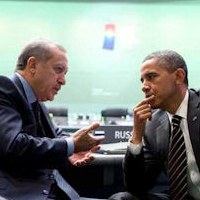
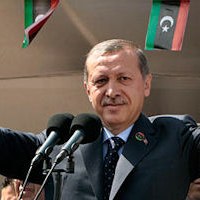




Latest Comments
Hello Mike, Thank you for your positive feedback to the article. I felt there wasn’t too much critical analysis of ...
Thanks for this considered and well constructed article. A follow up article on the manner in which the editorial contro...
THE CLUELESSNESS OF CLAIMING THAT OBAMA'S MIDDLE EAST POLICIES WERE A FAILURE CANNOT BE FURTHER FROM THE TRUTH, WHAT THE...
As long as Obama is the president of the usa do not trust the us government......
Thank you for an good read....